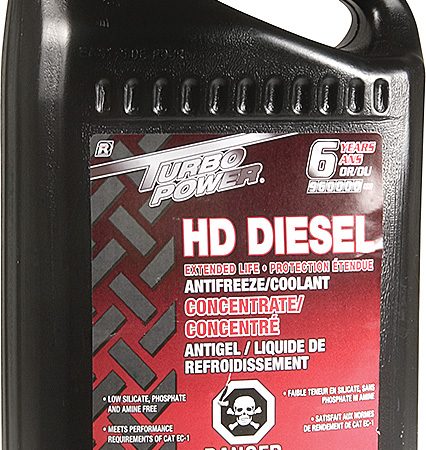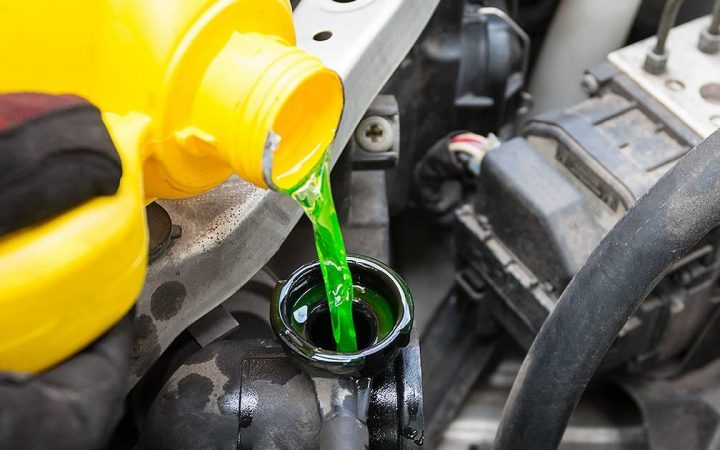 Anti-freeze is used in most every automobile and truck-replicating engine throughout the world. Even in hot climates, quality glycol keeps the engine cooler as it transfers heat more efficiently than just water. Additionally, additives to prevent corrosion are present to some degree in all. But when it comes to diesel or gas engines, glycol is not a one-size-fits-all.
Anti-freeze is used in most every automobile and truck-replicating engine throughout the world. Even in hot climates, quality glycol keeps the engine cooler as it transfers heat more efficiently than just water. Additionally, additives to prevent corrosion are present to some degree in all. But when it comes to diesel or gas engines, glycol is not a one-size-fits-all.
Diesel Engine Requirements
Diesel engines require a special formula of glycol. Failure to use a product that is designed specifically for diesel engines may result in an eventual catastrophic engine event. While this is especially true for wet-sleeved engines, bored block diesels also can be compromised.
But why are diesels so different to require such special anti-freeze? Well, to understand this you must be aware of the tremendous explosive pressure that each combustion chamber generates during the power stroke. This shock wave can cause the formation of small cavitation bubbles around the outside of the cylinder sleeves or the non-sleeved block casting in the area of the cylinder bores. These bubbles cause corrosion on the surface as they are continually impacted by the explosive shock wave. This condition, if not tended to, can result in perforating the cylinder walls, allowing glycol to enter the bores and into the oil pan. Glycol will quickly cause damage to the bores, pistons, rings, and bottom end bearings. Not a good thing!
Protective Additive
To combat this, diesel engines require a protective additive embedded in the glycol solution. One of the main ingredients is nitrite. This additive forms a protective shield that helps prevent this internal pitting caused by the bubbles.
The additive package that is contained within the standard diesel-specific glycol must be checked and maintained from time to time. This is done using tests strips, available at most diesel supply shops. Additional additives can be added in the form of SCA (supplemental coolant additives). This should be checked every six months or so.
The SCA level in standard diesel glycol is generally managed by a coolant filter that contains the SCA  and releases it over time. This is used primarily with standard 30,000 mile/2 year (green colored) glycol. Extended life, known as OAT (Organic Acid Technology) 100,000/5 year (Red,Pink or Gold) remarkably requires no additives. Engines using OAT require no filter added SCA and therefore must have a non-additive (Blank) coolant filter.
and releases it over time. This is used primarily with standard 30,000 mile/2 year (green colored) glycol. Extended life, known as OAT (Organic Acid Technology) 100,000/5 year (Red,Pink or Gold) remarkably requires no additives. Engines using OAT require no filter added SCA and therefore must have a non-additive (Blank) coolant filter.
Two words of caution here: Do not add SCA beyond the prescribed strength. Too much of this additive can cause other issues. Also, do not mix standard green glycol with O.A.T. as jelling of the solution may occur leading to blockage within the system.
Okay, for those not familiar with this, don’t panic. Your local dealer or engine shop knows how to handle this. Just remember to keep your rig regularly serviced and it will provide good service to you for years to come.
Peter Mercer — Looking Down Your Rad Cap






